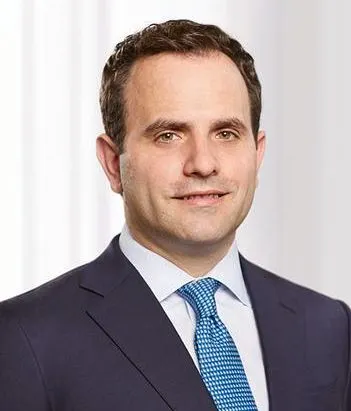In a short-supply job market, a finance chief succession plan is an important piece of long-term planning. And for CFOs interested in talent retention within finance, it may be even more valuable.
As CFO columnist Perry Wiggins wrote in 2019, “Organizations with poor succession planning practices not only run the risk of instability when important roles become vacated, but also lose opportunities to identify, train, and develop the next generation of leaders and empower them for success.”
Figuring out who can step into the top finance role should it be vacated — immediately or even with a year’s notice — is a nontrivial issue. The board of directors and CEO don’t want to rush to find a new finance chief because picking the wrong person can quickly put market, financial, and operating performance at risk.
However, according to leadership advisory firm Russell Reynolds Associates, many companies ignore this risk. According to Russell Reynolds data, globally, only 24% of CFOs say they have formal and proactive succession practices at their organization; 46% of CFOs have not been involved in a succession process at their organization in the last three years; and only 15% of CFOs said they were promoted via a succession planning process in the last three years.
Succession planning isn’t easy — done correctly, it can take three to five years, taking as many as two years to define the pool of talent (See table.) And there are no shortcuts to developing internal CFO candidates.
Russell Reynolds has studied the data on when CFOs are appointed as an internal promotion, and “the number of people who have less than three years’ experience at a company and are promoted to the top job is a very small number,” said Jim Lawson, global co-leader of Russell Reynolds’ financial officers practice.
Given the rapid turnover in many CFO jobs (tenure averages just under five years at large public companies), the current CFO may be gone before the succession plan gains traction.
Not only do internal candidates need to be identified, they need rotational roles outside of finance, including sales and operations; opportunities for exposure to the board; and rotational roles within finance, according to Russell Reynolds research that involved interviews with 10 current and former executives and board members who helped develop robust CFO succession plans.
Specialization and Centralization
In the U.S., there continues to be a shortage of strong CFO job candidates relative to the number of roles in the market, said Lawson. And that’s a problem for companies trying to line up successors.
Without a candidate at the ready, a company is forced to hire externally — about 40% of sitting CFOs in the Fortune 500 and S&P 500 were recruited from outside the company, according to August 2023 data from Crist|Kolder Associates. But with the shortage, companies that need to hire a CFO externally are grabbing other companies’ number-two finance executives, like a divisional CFO or a controller, who may be the strongest finance talent in their organization. And that person might have been in line for the CFO seat.
Number two’s are also being recruited because it opens up the diversity landscape. “There are more diverse candidates who are not sitting in the top job right now,” said Lawson.
CFO succession planning faces other challenges — like gaps in the experience of up-and-coming finance talent. There are two critical areas for succession candidates to develop, whether inside a formal succession plan or informally: experience presenting to the board and face-time with investors.

Lawson said getting more board engagement for the candidate so the board can form an opinion of the candidate is the easier one. But investor relations is more challenging. Historically, companies rotated finance talent through the investor relations (IR) function as part of skills development, said Lawson, but now IR has become a career specialization, taking away from the opportunity for finance team members to be exposed to the role.
The other meaningful skills gap for potential CFOs is managing large teams. It’s occurring because of the centralization of finance functions like accounting and procurement, said Lawson, or the move to shared services within some companies. Centralization means “the breadth of [a CFO candidate’s leadership opportunity] is smaller,” Lawson explained.
As an example, a recruiter may interview a divisional CFO of a $4 billion business at a company with a 500-person finance team. “They seem fantastic, they have great credentials,” but then the interviewer finds out they lead a team of only 12 people, said Lawson.
“If you promise your partner you’ll go cruise the world next October, and next October comes and the succession plan falls apart, the company may beg you to stay for two years. That can be frustrating."

Jim Lawson
Russell Reynolds Associates
Current CFO Should Stay Involved
Lawson said boards of directors are putting more pressure on CEOs and human resources to ensure a proper CFO successor. The current CFO should also want to have effective successors identified. But only 33% of CFOs have been involved in identifying and selecting succession candidates in the last three years, according to Russell Reynolds.
A finance chief with a long tenure at a company may even want to own the process. Why? One, as departing CFO, you want succession to happen on your timeline, said Lawson. “If you promise your partner you’ll go cruise the world next October, and next October comes and the succession plan falls apart, the company may beg you to stay for two years. That can be frustrating,” he said.
Two, the succession process and plan impact the direct reports and other team members who the CFO has developed and cares about. If finance team members have been coached and trained for several years but then there is high turnover on the board — not unusual these days — those new board members will be unfamiliar with the team members. They may pass them over when selecting a CFO or filling a different high-level finance position.
Three, when a CEO leaves unexpectedly and the CFO is a candidate to take the job but doesn’t have a successor in mind, “it creates a bit of a fire drill,” said Lawson.
“Frankly, there are situations [when] the CFO is a solid candidate for CEO but without a [CFO] succession plan the board may say, ‘we can’t lose X as CFO.’” The result? The board picks someone from outside the organization to be CEO because no one can fill the current CFO’s shoes.






















